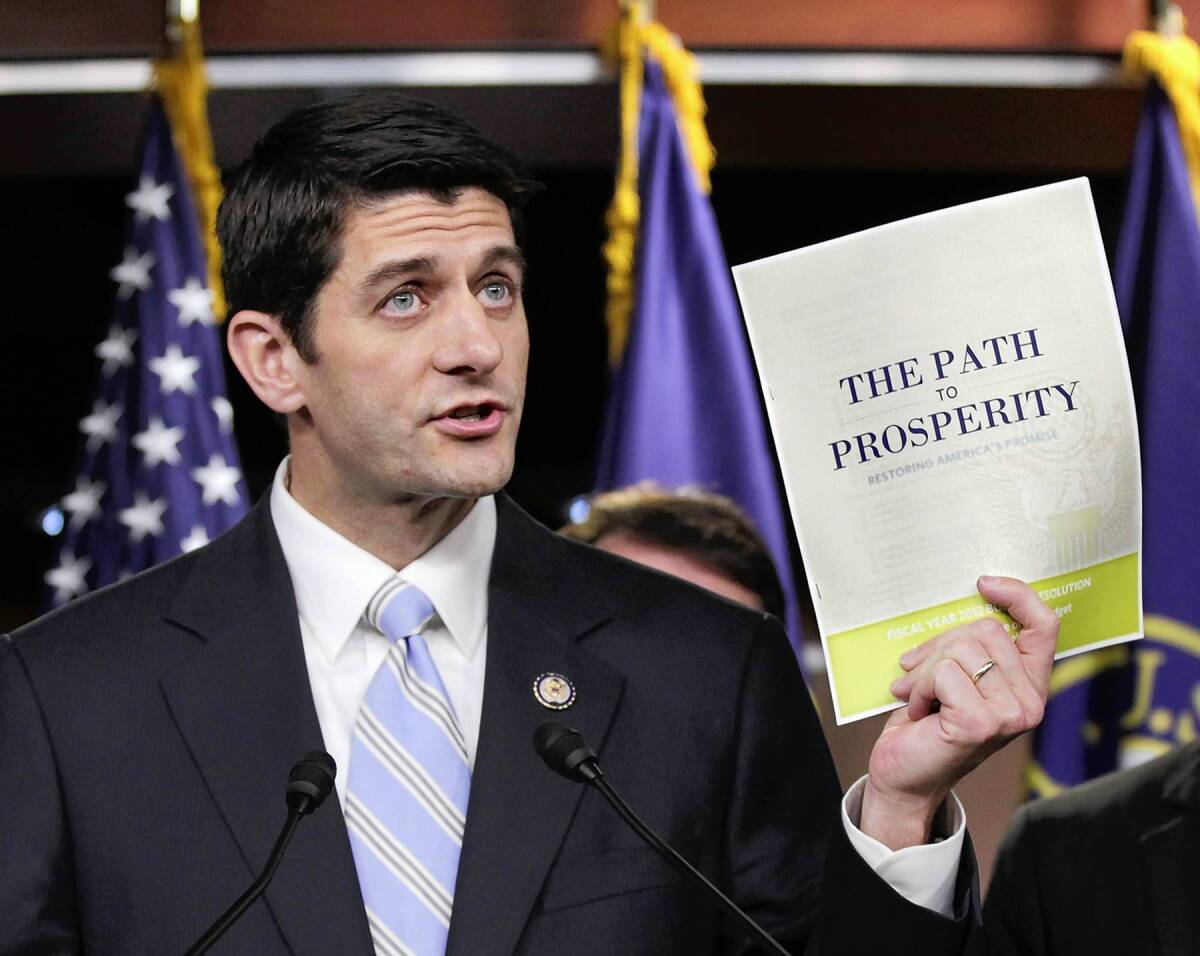Letters: The battle over Ryan’s budget

Re “Paul Ryan’s budget plan would destroy the middle class,” Column, Aug. 15
Any budget seeking to reduce spending and to reform otherwise doomed entitlement programs such as Medicare is going to cause pain. It is wise to spread that pain; you can’t raise taxes on anyone high enough to make a serious dent in the deficit without making painful cuts. And because the biggest beneficiaries of federal spending programs are the poor and some of the middle class, they will feel those cuts the most.
But at least Rep. Paul D. Ryan (R-Wis.), the GOP’s vice presidential nominee, has proposed a budget. The Democrats haven’t passed a budget at all since 2009. Where is the analysis of the president’s budget proposal, one that taxes the so-called wealthy while continuing to increase spending by the public sector? Why does Michael Hiltzik ignore the GOP claim that economic growth will raise all boats and end the pain of budget cuts earlier than the alternative?
Hiltzik and the president agree that public sector spending will spur economic growth; Mitt Romney and Ryan believe that only private sector spending will do so, and thus they call for lower tax rates while broadening the tax base.
Compare California with Republican-governed Wisconsin; which is the longer-term prescription for pain?
Jeffrey C. Briggs
Hollywood
Hiltzik has written an insightful column on the flaws in Ryan’s budget plan. Because Democrats are likely to challenge Romney and Ryan on this plan, it is probable that Republicans will respond using the same argument Democrats use with regard to the Affordable Care Act: What alternative do you offer?
We already know what works. Return to the budget and economic policies of the Clinton administration, including the requirement that all new programs have a source of funding and increased marginal tax rates on the higher brackets.
More than 20 million private sector jobs were created during the eight years of the Clinton administration, which finished with federal budget surpluses.
Michael Solomon
Canoga Park
Re “Ryan’s logic reflects a Catholic divide,” Aug. 13
Ryan says that the Roman Catholic Church’s admonition to care for the poor doesn’t mean he should support big government. That is a true statement as far as it goes, and it may reflect the principles of solidarity and subsidiarity.
What is missing are the replacements for the programs that care for the poor that the Ryan budget would cut. Those who follow the Gospel are not saying that the federal government needs to do certain things to protect the poor and the marginalized, but rather that certain protections need to be available.
If the federal government stops, somebody must start. Until that somebody is in place, the government needs to continue, or those who need protection will suffer. The gospel of Ayn Rand is not the Gospel of Jesus Christ.
James Prendergast
Pasadena
ALSO:
Postscript: Religious boundaries
Letters: Money for hypersonic jets
Letters: Why only go after pensions?
More to Read
A cure for the common opinion
Get thought-provoking perspectives with our weekly newsletter.
You may occasionally receive promotional content from the Los Angeles Times.





